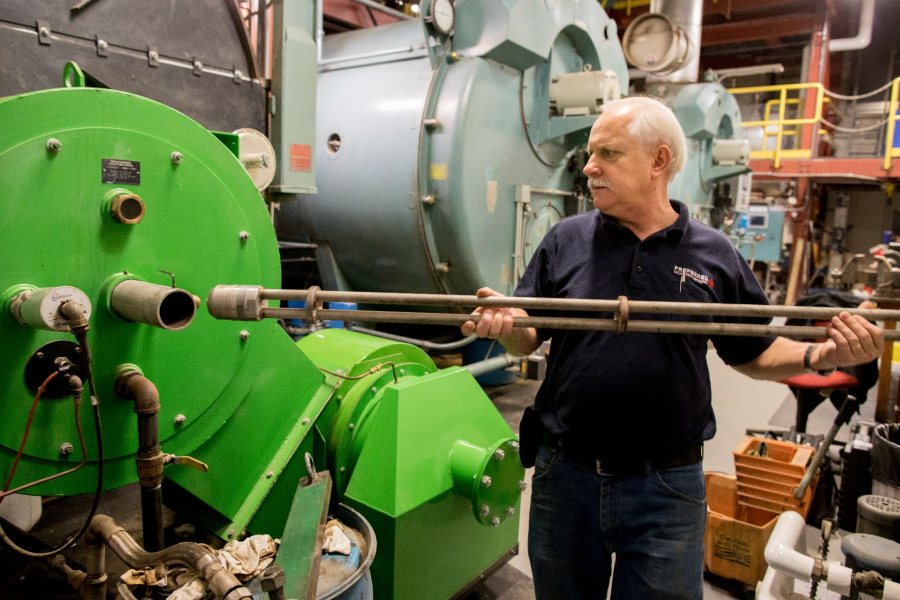
After a summer hiatus, Bates recently fired up its two commercial boilers, one of which burns Renewable Fuel Oil — an energy source used by no other college in the nation.
Because it’s both sustainably sourced and competitively priced with fossil fuels, RFO is a “dream come true,” says Tom Twist, the college’s sustainability manager.
A proprietary product from Ensyn, RFO is made by vaporizing wood feedstock (e.g., sawdust) at a very high temperature. The vapor, which retains the energy of the wood’s organic compounds, is then re-condensed into a fuel oil that’s burned in one Bates boiler to heat the campus in winter. (The other boiler uses natural gas, and there’s a third, backup boiler, too.)

Darrel Scribner of Preferred Utilities Manufacturing Corp. starts the RFO burner on Tuesday by inserting what’s known as an ignition oil gun. (Phyllis Graber Jensen/Bates College)
The switch to RFO last January, plus significant efficiency projects, puts Bates “within striking distance of our long-term goal of carbon neutrality,” says Twist.
In fact, Bates has reduced its carbon emissions by 81 percent since the early 2000s. “It’s an astounding drop at a time when many institutions are just trying not to go up.”
For the impressive way that Bates has threaded sustainability throughout the college — from academics and student activism to dining and facilities operations — the college earned a Gold rating from the Association for the Advancement of Sustainability in Higher Education.
AASHE is the “premier benchmarking agency for sustainability for any institution,” says Jay Phillips, director of Facility Services operations. Gold “is a huge achievement for Bates.”
In turns of emission reductions alone, Bates is eighth out of 362 college and universities on the AASHE scorecard. “Bates is emerging as a powerhouse in sustainability,” Twist says. “We are doing really well.”




